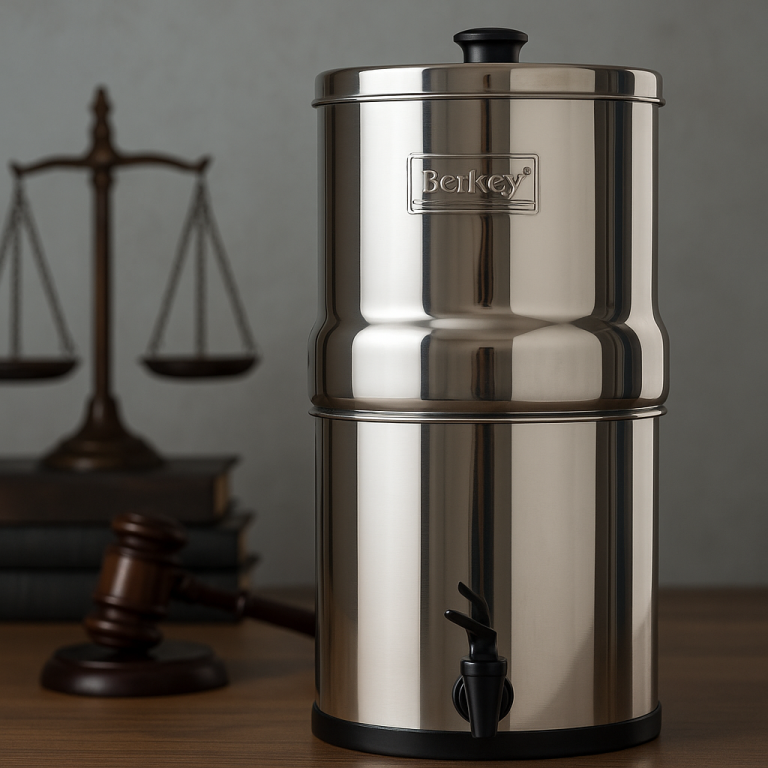The Potbelly Lawsuit highlights a major shift in how job postings are regulated. It shows how states are enforcing transparency rules. The case began in Washington, where lawmakers passed strict pay disclosure laws. Potbelly faced claims that its job ads failed to include required information.
The lawsuit garnered attention because it addresses everyday issues. People want clarity when applying for jobs. Applicants want to know pay ranges. They want to know the benefits. They expect fairness. Washington law makes that expectation a legal requirement. This article explains the Potbelly Lawsuit in detail and also explores what this case means for job seekers, employers, and future hiring.
Case Overview
The Potbelly Lawsuit was filed in King County Superior Court in Washington. The plaintiffs accused Potbelly of posting job listings that did not include pay ranges and benefits. Washington’s Equal Pay and Opportunities Act requires these disclosures. The law applies to employers with at least 15 employees. Potbelly fell into that category.
Plaintiffs argued that Potbelly violated state law by failing to include this key information. The missing details could mislead applicants. Applicants might waste time applying without knowing the compensation. They might apply under false assumptions. That lack of transparency formed the heart of the claims. Potbelly denied wrongdoing. The company insisted it did not violate the law. Still, litigation is expensive and risky. The company agreed to settle to avoid further cost. The settlement created a fund that would compensate eligible applicants.
Timeline of the Potbelly Lawsuit
The timeline shows how the case developed and why it matters. Each date marked an important step toward resolution.
June 2024
The lawsuit was filed in King County Superior Court. Plaintiffs claimed Potbelly’s Washington job postings lacked pay and benefits details. The law had been clear since January 2023. The filing argued Potbelly ignored that requirement.
July 2024
Potbelly removed the case to federal court. Companies often do this when facing class actions. Federal courts follow different rules. Potbelly likely believed it could defend itself better there. The case was assigned a new federal docket number.
September 2024
The federal judge granted a stay. This paused the proceedings. The order noted mediation efforts. It also pointed out that similar issues were pending across Washington. The pause allowed space for settlement talks.
March 2025
The parties reached an agreement. They outlined a settlement that created a compensation fund. The agreement defined who qualified and how payments would work. The plaintiffs and Potbelly asked the state court to approve the deal.
May 2025
The state court granted preliminary approval. The judge certified a settlement class. The court approved the notice process. The judge also set a date for the final approval hearing. This step confirmed the case had moved into settlement mode.
June 2025
The settlement administrator mailed notices. Applicants across Washington received information about the settlement. The notice explained how to submit a claim. It also listed deadlines and important dates.
August 2025
The deadline to file claims arrived. Applicants who wanted payment had to submit forms by August 4. Late claims were not accepted. Exclusion and objection deadlines also passed on this date.
October 2025
The court set October 10 as the final approval hearing. The judge will decide if the settlement is fair. If the court grants approval, payments will follow. If the court rejects it, the case may continue.
Allegations Explained
The allegations focused on Washington’s pay transparency law. The law requires employers to disclose wage ranges and benefits in job postings. Plaintiffs said Potbelly ignored that rule.
They argued that Potbelly published postings without any pay range. Some postings also failed to list benefits. Applicants applied without knowing what they could earn. They lacked critical details for deciding whether to apply. The lawsuit claimed that this omission harmed applicants. It wasted their time. It also violated Washington law. The law gives applicants the right to bring a case. Plaintiffs asked the court to certify a class of all affected applicants.
Defendant’s Response
Potbelly denied the allegations. The company argued that it did not break the law. It claimed it complied with hiring practices. Potbelly emphasized that the settlement did not admit guilt.
In class action settlements, defendants often deny liability. They settle to save costs. Trials can be unpredictable. Even if a company believes it will win, the risk is high. Legal fees and possible damages can mount quickly. Potbelly followed this common path. The settlement allows Potbelly to resolve the matter without admitting wrongdoing. It also ensures that applicants receive compensation. Both sides gain closure.
Washington Law Context
The case only makes sense in the context of Washington’s law. The state adopted the Equal Pay and Opportunities Act. It took effect for job postings on January 1, 2023. The law requires employers to include salary ranges in postings. It also requires a description of benefits and other compensation. The rule applies to employers with at least 15 workers. Potbelly clearly met that threshold. The law aims to increase fairness. Pay transparency helps applicants compare jobs. It helps reduce pay gaps. It ensures people understand what a role offers. Violations can lead to private lawsuits.
Settlement Details
The Potbelly Lawsuit settlement created a fund to compensate applicants. The amount ranged from about $1.69 million to about $2.7 million. The exact total depends on claims volume.
The fund will cover payments to class members. It also pays for attorney fees, administrative costs, and a service award to the lead plaintiff. The remainder goes to eligible applicants. The judge granted preliminary approval in May 2025. That approval confirmed the fund size and class definition. It also set the notice and claim process in motion. Final approval in October will decide whether payments are distributed.
Class Eligibility and Implications
The settlement class covers applicants who applied to Potbelly in Washington between January 1, 2023, and November 13, 2023. The class size includes about 2,706 people. Class members had the right to submit claims. They also had the right to exclude themselves. Those who excluded themselves keep the right to sue separately. Those who submitted claims will receive payment if the court grants final approval. The settlement binds all class members unless they opted out. This is standard in class actions. It ensures a single resolution instead of thousands of individual cases.
Payment Structure and Distribution
Payments depend on claims volume. The notice estimated a minimum payout near $317 per claimant. If fewer people filed, checks could be higher. If more filed, checks could be lower. Payments will go out only after final approval. That means no checks until after October 2025 at the earliest. Appeals could delay payments further. The settlement treats payments as non-wage damages. They may still be taxable. Claimants are responsible for tax reporting. The administrator may issue tax forms if required.
Legal Proceedings and Court Steps
The court process followed the typical class action path. It began with a complaint. It moved into motions and a federal removal. A stay followed to allow mediation. Settlement talks succeeded. The state court then handled approval steps. The key step ahead is the final fairness hearing. The judge will examine whether the settlement is fair. The court will also consider objections. The court will review attorney fee requests. Only after that step can payments proceed.
Comparison to Other Transparency Cases
The Potbelly Lawsuit is not unique. Washington has seen several similar cases since 2023. Other employers faced claims over job postings. Many cases reached settlements. These cases reflect a broader trend. Pay transparency laws are spreading nationwide. States like California and Colorado also require disclosures. Employers must adapt or face litigation. The Potbelly Lawsuit fits into this wave. It shows that courts take these rules seriously. It also shows that plaintiffs’ lawyers are actively pursuing these cases.
Impact on Job Seekers
Job seekers benefit from these cases. The Potbelly Lawsuit enforces transparency. Applicants deserve to know what they will earn. They deserve clarity on benefits. This case shows that people can hold employers accountable. It also sends a message that state laws have teeth. Applicants can use these laws to demand fairness. The settlement compensates applicants for harm. More importantly, it pressures companies to improve postings. That benefits all future job seekers.
Impact on Employers
The lawsuit warns employers about risk. Companies cannot ignore pay transparency rules. Even small mistakes can spark lawsuits. Employers should update job posting templates. They should train recruiters. They should confirm compliance in every state where they hire. The cost of non-compliance is high. Settlements can reach millions. Employers must also monitor legislative updates. Washington amended its law in 2025. Future changes could increase or decrease liability. Compliance must stay current.
Compliance Checklist for Businesses
Businesses can avoid lawsuits by following a checklist.
- Confirm whether the law applies. In Washington, the threshold is 15 workers.
- Always include salary ranges in job postings. The range must be real, not symbolic.
- Describe benefits clearly. Mention health, retirement, and other compensation.
- Review postings before publishing. Mistakes can be costly.
- Train managers and recruiters. Everyone involved in hiring should understand the law.
- Keep records of postings. Documentation proves compliance if challenged.
- Update policies after law changes. Washington updated its rules in July 2025.
Following this checklist can protect companies from future lawsuits.
Broader Legal and Social Implications
The Potbelly Lawsuit carries lessons beyond one company. It shows how states are enforcing fairness. It shows how courts handle new workplace rules. The case reflects growing demands for transparency. Workers want clarity. Laws now give them that power. Companies must meet those expectations. It also reflects a cultural shift. Pay secrecy once dominated workplaces. Now transparency is becoming the norm. This lawsuit is part of that larger story.
Final Thoughts and Conclusion
The Potbelly Lawsuit proves that pay transparency is no longer optional. Washington requires wage ranges and benefits in job ads. Plaintiffs said Potbelly ignored that duty. Potbelly denied liability. Still, the case moved toward settlement. The settlement covers more than 2,700 applicants. Payments may average over $300 each. Final approval will decide distribution. The case sends a clear warning to other employers. The lesson is simple. Transparency builds trust. Compliance avoids lawsuits. Job seekers win when the law enforcers fairness. The Potbelly Lawsuit shows exactly why these rules matter.




